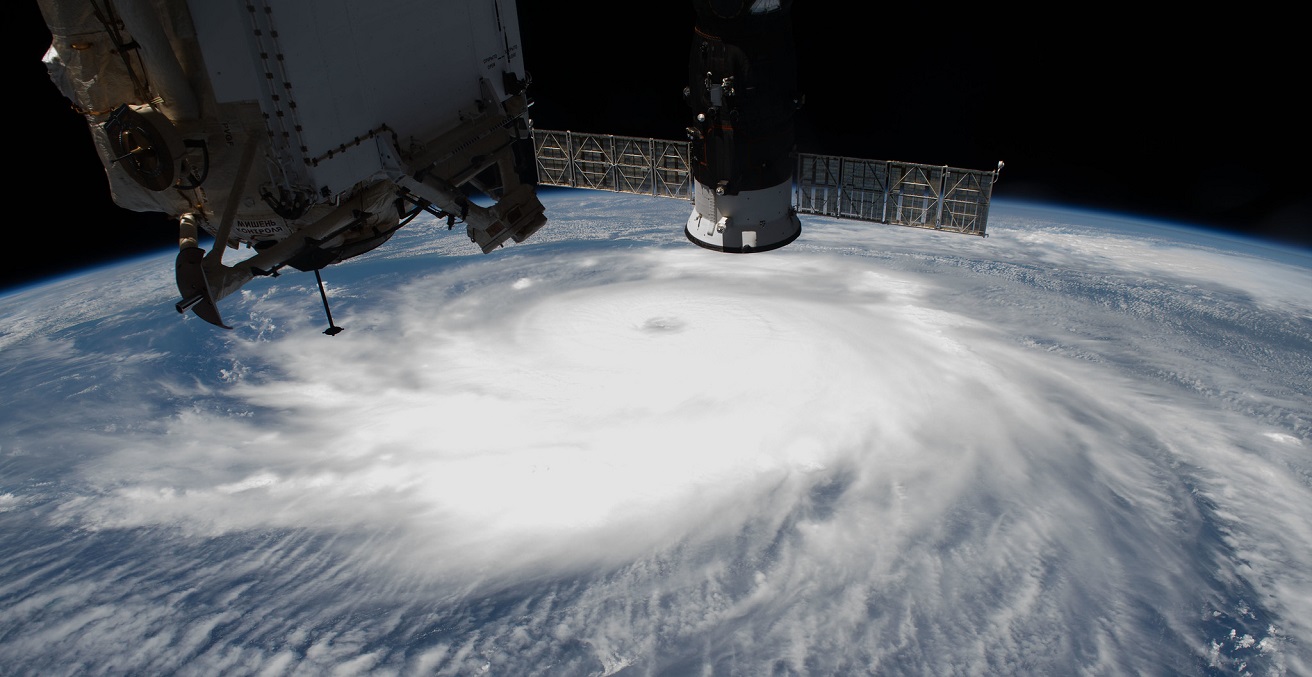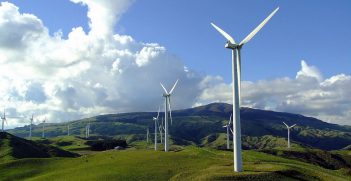Is Climate Change a Factor in US Elections?

Climate change has a hand in nearly all of the issues American voters consider most important in the upcoming presidential election. In most swing states, however, voters would have to look closely to see what their economic and healthcare woes have to do with climate change.
Wildfires driven by high winds and a heat wave have caused devastation on America’s west coast. More hectares have been burnt than at any time in history. Scientists have already attributed the 15 lives lost, 500,000 evacuations, and thousands of homes destroyed to climate change. To Australians, with all too fresh memories of last summer’s east coast bush fires, it is a familiar story.
This American fall, those living in the southern and south-eastern United States have experienced yet another phenomenon attributed to climate change. The US is enduring its worst hurricane season in recorded history, with 20 storms so far and more developing in the Atlantic Ocean.
Hurricane Laura devastated chunks of Louisiana and Texas last month, leaving 15 people dead. A few days ago, Hurricane Sally stalled over the Gulf of Mexico, slowing its speed but increasing its intensity. Torrential rain and gale-force winds caused heavy flooding in Florida, Alabama, Mississippi, and Louisiana. We watched in horror as brave emergency workers struggled to contain the wreckage.
Research from NASA and the National Oceanic and Atmospheric Administration point to more frequent and more dangerous storms. Scientists note that the melting Arctic ice cap has created changes in atmospherics over the Atlantic. Joining in chorus with activists, television pundits are predicting that climate change will be the big issue in the US presidential election on November 4, for which postal voting has already begun.
But do Americans really care enough about climate change for it to be a decisive factor in their vote for the next president? A poll conducted by the Washington Post and the Kaiser Family Foundation found that eight in ten Americans blame human activity for fuelling climate change, and about half that number believe urgent action is needed to avoid a worse crisis. Yet four in ten is neither a majority nor a commitment to climate change as a major issue in the election, even though they feel the Trump administration has done too little to tackle the problem. We need to dig a little deeper.
With the US economy mired in deep recession, largely caused by the Trump administration’s mishandling of the coronavirus, it is hardly surprising that four out of five of those surveyed by the respected Pew Institute put the economy as the top issue. That does not necessarily mean they will accord blame to Trump, especially those whose portfolios have gained from a strong stock market, or that they will vote for Joe Biden, who Trump is portraying as a prisoner of the Sanders-Pelosi left wing of the Democratic Party.
Other issues identified by Pew as “very important” to voting decisions are America’s uneven health care system (68 percent of voters), the COVID-19 pandemic (62 percent), violent crime (59 percent), and immigration and racial/ethnic inequality (52 percent each). Climate change musters only 42 percent, just ahead of abortion at 40 percent. However, the Pew survey was undertaken in early August before the full impact of the wildfires had hit the headlines, and the arrival of the worst hurricanes Americans can remember. It is not unreasonable to suggest that voters in Florida and California may well have climate change higher on their priority list after their grim experiences.
Nevertheless, it is apparent that most of the issues identified by the Pew study as most important in the coming election have their origins in either the environmental havoc caused by rising temperatures or in the economic havoc caused by the deadly coronavirus and the devastation of fire and floods. Research by the American Association for the Advancement of Science (AAAS) has forecasted with uncanny accuracy the economic impact of climate change. In summary, it argues that the combined value of market and non-market damage across analysed sectors – agriculture, crime, coastal storms, energy, human mortality, and labour – is 1.2 percent of US GDP for every one-degree Celsius rise in temperature. It is noteworthy that crime, energy and electricity generation, and unemployment were included in the analysis. Had healthcare been a part of the study, the dangerous air quality and the damage to mental health in the wildfire areas and beyond would have had a further negative impact on GDP projections.
Those advocating that voters should factor climate change and sustainability into their voting decisions have some rich and powerful allies in “Big Tech,” particularly in Silicon Valley and on Wall Street. Some of the world’s biggest companies have made big gains during the pandemic. Google and Apple have seen their COVID-19 proximity app gain worldwide recognition and have also benefited from the surge in home working and distance learning.
As traditional retailers have suffered, on-line vendors like Amazon and Shopify have surged. Microsoft is another big winner. Its Skype application, along with Apple’s FaceTime, and Eric Yuan’s Zoom, have greatly reduced greenhouse gas emissions by limiting global travel for both business and leisure. China-born Yuan’s contribution has been particularly interesting. He made eight unsuccessful attempts to move to Silicon Valley before being granted a visa, and subsequently turned his application into a business essential.
Silicon Valley has invested heavily in carbon reduction technologies. Amazon, Shopify, and Microsoft have put US$3.5 US billion into specific projects in recent days, timed to coincide with the Race to Zero campaign currently promoted by the United Nations and backed by Joe Biden, who accuses Trump of being a climate arsonist. This move apparently led the editors of Scientific American to endorse Biden as president, the first time it has made such a call in its 175-year history.
Yet as Marshall McLuhan memorably once said, “the medium is the message.” The average American voter may not recognise the linkage between climate change and other priority issues, let alone read science magazines, the business press, or follow events at the United Nations. They are more likely to follow the campaign rhetoric of Trump and Biden and their cheerleaders. Media outlets that Trump accuses of purveying fake news include CNN, the New York Times, the Murdoch-owned tabloids, and Fox News. Fox News’s semi-sensational brand of opinion television journalism occupies prime time in America but, according to Nielsen, has under 2.4 million viewers, including the present occupant of the White House.
Although many have already voted, the presidential campaign still has a way to go. If a week is a long time in politics, a month may be an eternity. Climate change will be a factor, but it is unlikely to be the decisive factor, despite the impact of recent events. I suggest that this is because America’s strange election system, by which the president is chosen by the electoral college (538 men and women spread across the states) with the weighting of each state based on the voting population.
In 2016, Hillary Clinton won the national vote but lost the election to Trump who gained more electoral college votes in the swing states, with the Midwestern states being an important factor. As I write, there is a rough consensus that in November, the swing states will be Florida, Ohio, Pennsylvania, Michigan, North Carolina, Iowa, and Wisconsin. It is significant that of these, only Florida has been severely affected by climate change. In the other seven states, other factors will likely determine the popular vote. Biden is currently ahead in five of them, as well as in Florida. In that key state, with 29 electoral votes, his majority is only 2.5 percent.
Biden’s position is still far from comfortable, and the election is still his to lose. Given where the swing seats are, it would seem that Bill Clinton’s slogan, “It’s the economy, stupid” should be ringing in his ears and he should head north to capture back the voters Hillary Clinton lost to Trump. That won’t be easy.
Colin Chapman is a former president of AIIA NSW and a former vice-president Asia Pacific of a global geopolitical analysis company. Earlier, as director of broadcasting at the Financial Times, he attended eight annual meetings of the World Economic Forum as a media leader and continues to follow its debates, which are available to the public at weforum.org.
This article is published under a Creative Commons License and may be republished with attribution.





